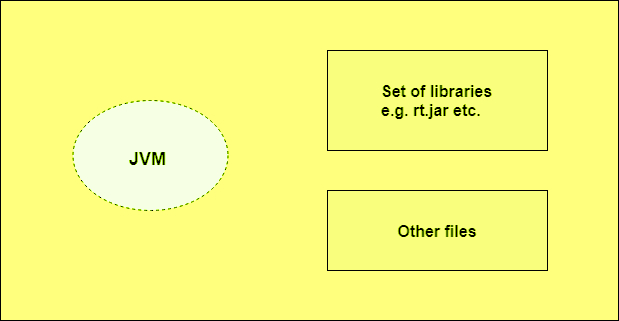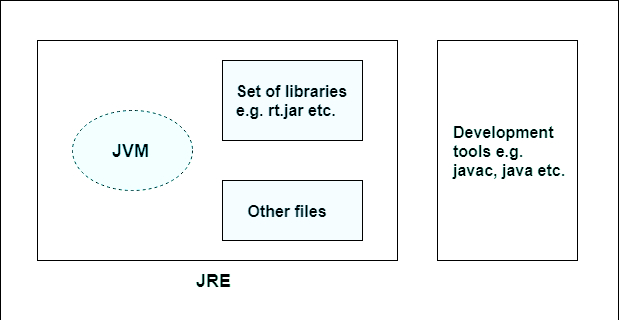Before delving into Java, it’s important to understand the distinctions between JDK, JRE, and JVM. Here is a brief overview of each component:
JVM (Java Virtual Machine)
JVM (Java Virtual Machine) is an abstract machine that provides a runtime environment for executing Java bytecode. It’s called a virtual machine because it doesn’t physically exist. The JVM is a specification that defines the behavior of a virtual machine that can execute Java bytecode. It’s capable of running programs written in other languages, as long as they are compiled to Java bytecode.
JVMs are available for a wide range of hardware and software platforms. However, the JVM, JRE, and JDK are platform-dependent because each operating system has a different configuration. On the other hand, Java is platform-independent.
There are three different notions of the JVM: specification, implementation, and instance. The JVM specification defines the behavior of the JVM, while the implementation is the actual software that provides the runtime environment for executing Java bytecode. An instance is an actual running copy of the JVM.
The JVM performs several key tasks like
- Loads code
- Verifies code
- Executes code
- Provides runtime environment
JRE (Java Runtime Environment)
JRE, or Java Runtime Environment, is a collection of software tools used for developing Java applications. It provides a runtime environment for Java applications to run on. The JRE is an implementation of the JVM, but it physically exists as a software package. It includes a set of libraries and other files that the JVM uses at runtime to execute Java bytecode.
Aside from Sun Microsystems, other companies also actively release their implementations of the JVM. These implementations are designed to be compatible with the Java platform, ensuring that Java applications can run on different hardware and software platforms. The JRE is an important component of the Java platform, and it’s needed to run Java applications on a computer.

JDK (Java Development Kit)
JDK stands for Java Development Kit, and it is a software development environment used for developing Java applications and applets. Unlike the JRE, the JDK physically exists as a software package. It includes the JRE as well as various development tools.
The JDK is an implementation of one of the following Java Platforms released by Oracle Corporation:
- Standard Edition Java Platform
- Enterprise Edition Java Platform
- Micro Edition Java Platform
The JDK includes a private JVM and other resources such as an interpreter/loader (java), a compiler (javac), an archiver (jar), and a documentation generator (Javadoc) to facilitate the development of a Java application. These tools are necessary for creating, compiling, and packaging Java applications.

We hope you now have a comprehensive grasp of the Difference Between JDK, JRE, and JVM. To further expand your knowledge, we recommend exploring tutorials.freshersnow.com.
